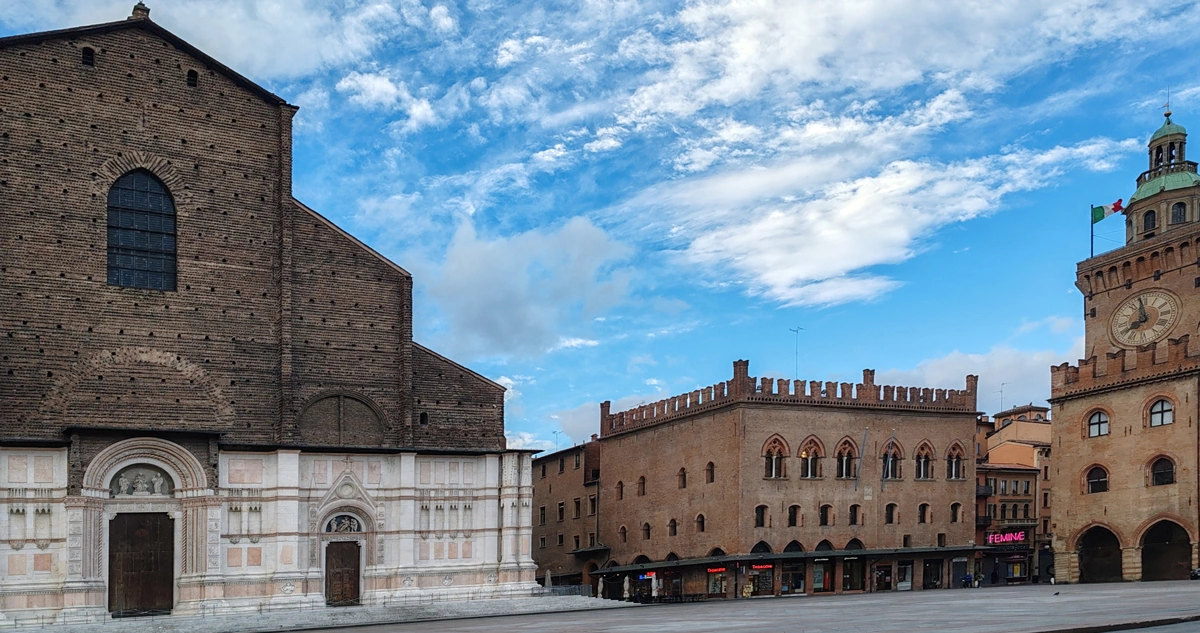

Certificates of Attendance are available through your personal myJASM2024 area (myDocs section).
Dear Friends and Colleagues,
We are pleased to invite you to the Joint ABCD Special Interest Groups Meeting, JASM 2024, that will be held in Bologna, from 17 to 19 October 2024.
The Conference will take place at the Opificio Golinelli, an innovation ecosystem created as a citadel for promoting knowledge and spreading the culture of science.
During the three days of this Joint Conference, two ABCD Special Interest Group meetings will take place, one after the other: “Organelle biogenesis, signal transduction and trafficking” (17-18 October) and “Cellular stress, stem cells, development and regeneration” (18-19 October).
The choice of a Joint Conference aims to increase transversal interactions between researchers dealing with different, but similar and complementary topics in the field of cell communication and development, in order to stimulate greater scientific discussion and collaborative exchanges.
We will have five main keynote lectures: Jos Jonkers (Netherlands Cancer Institute, Amsterdam, The Netherlands), Giovanni D’Angelo (École Polytechnique Fédérale de Lausanne, EPFL, Lausanne, Switzerland), Chiara Di Malta (TIGEM and University of Naples Federico II, Italy), Michele Studer (Université Côte d’Azur, UCA, CNRS-Institute of Biology Valrose, Nice, France), Raffaele Nicastro (University of Fribourg, Fribourg, Switzerland), and Irene Faravelli (Harvard University, Cambridge, MA, USA) that will cover different aspects of signal transduction, cancer, protein trafficking, lipid biology and brain development in different physio-pathological contexts.
As usual in ABCD Group Meetings, most of the talks will be given by Ph.D. students, postdocs, and young researchers selected from the submitted abstracts.
Overall, JASM 2024 will provide a great opportunity to share new ideas, foster collaborations, and encourage young researchers in the field.
To encourage your participation during all three days, we offer a reduction on the registration fee to those who wish to attend the entire Joint Meeting. You may also join just one of the two Group Meetings, but do not exclude this opportunity for cross contamination between topics and research approaches!
Please explore this website for more details on the Conference venue, accommodation, and registration procedures.
We look forward to welcoming you to Bologna!
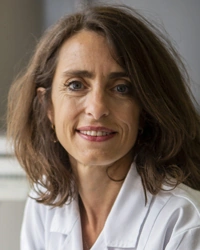
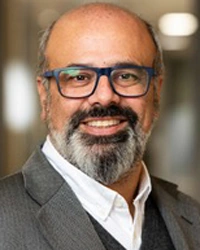
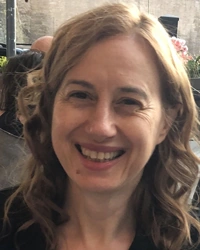
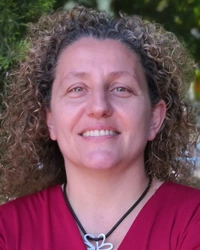
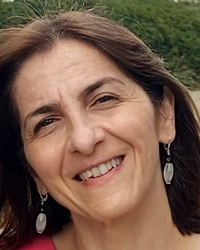
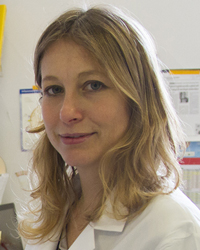
Giovanni D’Angelo
École Polytechnique Fédérale de Lausanne
Jos Jonkers
Netherlands Cancer Institute, Amsterdam
Simona Paladino
University of Naples Federico II
Sara Sigismund
European Institute of Oncology
University of Milan
Under the aegis of

With the support of
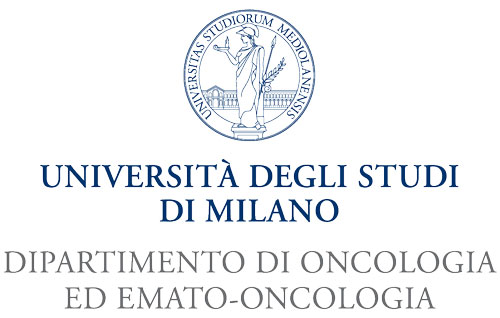



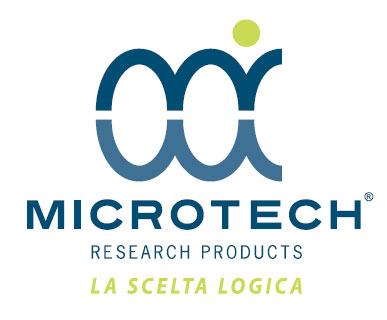

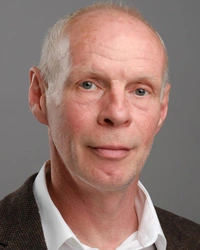
Jos Jonkers performed his PhD and postdoctoral research in the groups of Anton Berns at the Netherlands Cancer Institute (NKI) and Allan Bradley at the Wellcome Sanger Institute. He is currently a Senior Group Leader in the Division of Molecular Pathology at the NKI, Senior Investigator at the Oncode Institute (https://www.oncode.nl), Affiliate Professor of Molecular Experimental Oncogenetics and Cancer Therapeutics at Leiden University, and elected member of the European Molecular Biology Organization (EMBO).
His group (www.nki.nl/research/research-groups/jos-jonkers) studies breast cancer using genetically engineered murine models (GEMMs) and patient-derived xenograft (PDX) models. His lab has generated several GEMMs for BRCA1/2-associated breast cancer (BABC) and invasive lobular breast cancer (ILC), which are used for both basic and translational studies focusing on cancer gene discovery and validation, tumor-host interactions, and mechanisms of therapy response and resistance.
His lab has made important contributions to (1) understanding the roles of BRCA1/2, E-cadherin and FGFR2 in breast cancer, (2) identification of driver genes/pathways in BABC and ILC, (3) functional classification of BRCA1 VUS, (4) identification of mechanisms of resistance to PARP, FGFR and mTOR inhibitors, (5) development of novel technologies for somatic modeling of breast cancer in mice and rats, (5) generation of mouse intraductal PDX models of ductal carcinoma in situ (DCIS) and hormone receptor-positive breast cancer.
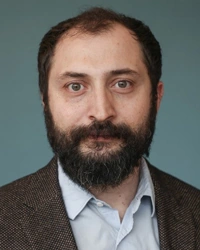
Giovanni D’Angelo graduated in 2003 with a MSc in Medical Biotechnology from the University of Naples, Italy and obtained his PhD in Cell Biology in 2008 from the Consorzio ‘Mario Negri’ SUD, Santa Maria Imbaro, Italy. For his postdoctoral training, he moved to the Telethon Institute for Genetics and Medicine in Naples, Italy to study sphingolipid metabolism and intracellular lipid trafficking. In 2012, Giovanni moved to the Institute of Protein Biochemistry, at the National Research Council of Italy in Naples as a principal investigator. In 2018 Giovanni moved to the Swiss Federal Institute of Technology in Lausanne (EPFL), where he is now Assistant Professor and Kristian Gerhard Jebsen Chair on Metabolism.
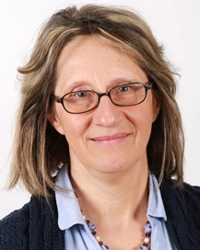
Dr M. STUDER, PhD, is a well-established scientist in the field of developmental neurobiology with a long-standing experience in mouse genetics. She has been trained in top laboratories in London, UK, as a post‐doctoral fellow at NIMR and as a Junior Group leader at King’s College London, where she received an MRC Career Development Award to start her lab. In 2000, she spent a few months as a visiting scientist at UCSF, USA. She was then recruited as a PI at the Telethon Institute of Molecular Medicine (TIGEM) in Italy and then moved to France in 2009 as a Research Director, where she received an ANR Chaire d’ Excellence award to work on the molecular mechanisms underlying cortical organization.
Her major research focuses on deciphering the molecular and cellular mechanisms underlying neuronal diversity and circuit assembly in the normal and pathological brain. Her team aims to link cortical development to the different malformations described in neurological disorders. She is now working on BBSOAS, a monogenic neurodevelopmental disorder caused by the haploinsufficiency of the NR2F1 gene, a transcriptional regulator that plays a key role during brain development. By employing a multidisciplinary approach including disease structural bioinformatics, animal models, and 3D IPSC-derived cerebral organoids, the team is contributing to unveiling the impact of the different mutations on protein stability and cell function and the genotype/phenotype correlation of the disease.
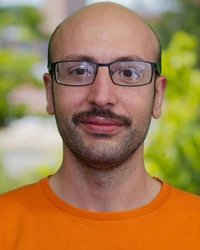
A graduate of the University of Milan-Bicocca, Raffaele Nicastro is a Senior Researcher at the University of Fribourg, Switzerland, in the group of Prof. Claudio De Virgilio, where he investigates the regulation of conserved eukaryotic signaling pathways to elucidate the cellular mechanisms of adaptation to macronutrient deprivation. Exploiting the yeast Saccharomyces cerevisiae, but with an outlook to other eukaryotic organisms, his recent research focused on the crosstalk of the TORC1 and AMPK pathways with metabolic processes such as fatty acid and polyamine biosynthesis and amino acid uptake and catabolism. His research uncovered new mechanisms of direct metabolic regulation of signaling pathways and the outcome of feedback mechanisms on the subcellular localization of the pathway effectors.
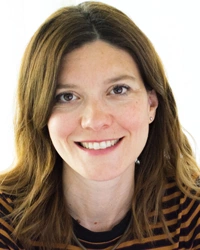
Chiara Di Malta graduated in 2005 with a degree in Biological Sciences from Federico II University in Naples. During her predoctoral studies, she focused on the pathogenetic mechanisms underlying the neurodegenerative phenotype of Lysosomal Storage Disorders (LSDs), which are rare genetic diseases caused by the accumulation of undigested material inside lysosomes. Her research was conducted at the Telethon Institute of Genetics and Medicine (TIGEM) in Naples and Baylor College of Medicine in Houston, under the supervision of Professor Andrea Ballabio. As a postdoctoral researcher at TIGEM, she investigated the signaling pathways that regulate lysosomal adaptation to nutrient availability. Her work led to the identification of a novel transcriptional regulation mediated by MiT/TFE factors that control mTORC1 signaling. More recently, she demonstrated that this mechanism promotes cystogenesis and tumor growth in Birt-Hogg-Dubé syndrome, a genetic condition caused by loss-of-function mutations in the gene encoding FLCN, a key regulator of mTORC1 signaling activation.
Since 2021, she is an independent investigator at TIGEM, where her research focuses on novel mechanisms of lysosomal activity and signaling regulation in both physiological and pathological conditions.
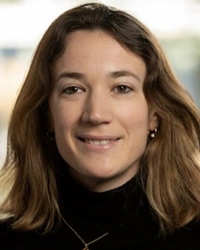
After earning her medical degree in 2013, Irene joined the Neurology residency program at the University of Milan, while conducting research on motor neuron diseases. At the IRCCS Fondazione Ca’ Granda Ospedale Maggiore Policlinico, she worked on different clinical and preclinical studies also involving the use of 3D spinal organoids derived from stem cells to elucidate neuromuscular disease mechanisms. In 2017, she was a visiting postdoctoral fellow at Columbia University in New York, investigating the role of the SMN complex in spinal muscular atrophy using preclinical models. Findings from this work highlighted the crucial influence of post-translational modifications in determining disease phenotypes. In 2021, Irene joined the Arlotta Lab at Harvard University and assumed a position as a postdoctoral research fellow at the Stanley Center for Psychiatric Research at the Broad Institute of MIT and Harvard. Here, her research efforts focused on investigating the neurobiology of development and neurodevelopmental disorders through the utilization of brain organoids. She pioneered the development of a novel 3D human in vitro platform aimed at probing the variability in response to different neurotoxins and therapeutics. Additionally, she worked on generating more complex brain organoid models, recapitulating the diverse cell types expected during brain development. Her research aims at bridging the gap between clinical neurology and neuroscience.